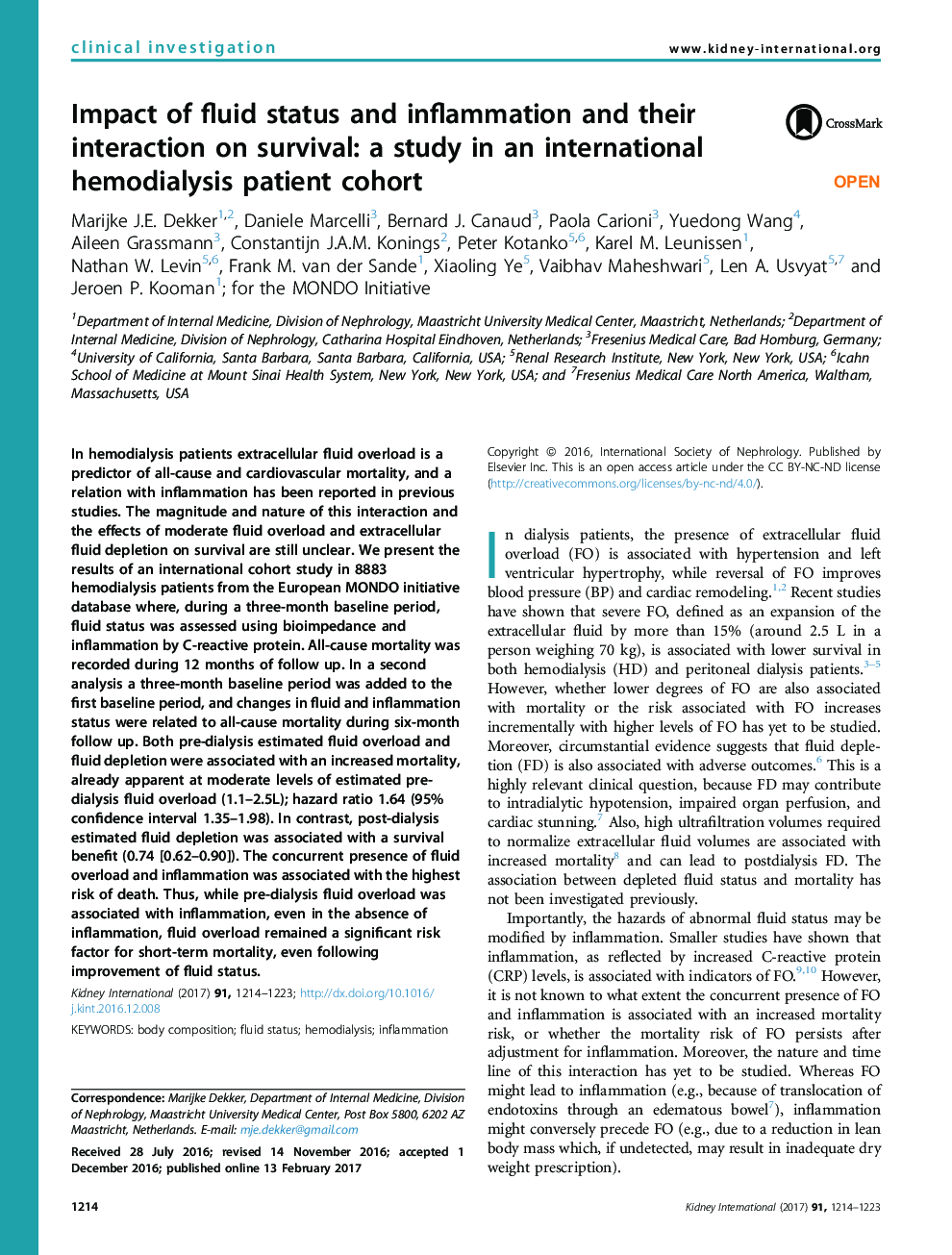| Article ID | Journal | Published Year | Pages | File Type |
|---|---|---|---|---|
| 5688503 | Kidney International | 2017 | 10 Pages |
In hemodialysis patients extracellular fluid overload is a predictor of all-cause and cardiovascular mortality, and a relation with inflammation has been reported in previous studies. The magnitude and nature of this interaction and the effects of moderate fluid overload and extracellular fluid depletion on survival are still unclear. We present the results of an international cohort study in 8883 hemodialysis patients from the European MONDO initiative database where, during a three-month baseline period, fluid status was assessed using bioimpedance and inflammation by C-reactive protein. All-cause mortality was recorded during 12 months of follow up. In a second analysis a three-month baseline period was added to the first baseline period, and changes in fluid and inflammation status were related to all-cause mortality during six-month follow up. Both pre-dialysis estimated fluid overload and fluid depletion were associated with an increased mortality, already apparent at moderate levels of estimated pre-dialysis fluid overload (1.1-2.5L); hazard ratio 1.64 (95% confidence interval 1.35-1.98). In contrast, post-dialysis estimated fluid depletion was associated with a survival benefit (0.74 [0.62-0.90]). The concurrent presence of fluid overload and inflammation was associated with the highest risk of death. Thus, while pre-dialysis fluid overload was associated with inflammation, even in the absence of inflammation, fluid overload remained a significant risk factor for short-term mortality, even following improvement of fluid status.
